THIS IS JUST THIS.
IT ISNT REAL.
ITS MONEY
THIS IS JUST THIS.
IT ISNT REAL.
ITS MONEY
THE OBERON ANTHOLOGY OF
CONTEMPORARY IRISH PLAYS EDITED AND INTRODUCED BY THOMAS CONWAY
HEROIN by Grace Dyas
Trade by Mark OHalloran
The Art of Swimming by Lynda Radley
Pineapple by Phillip McMahon
I Alice
Alice I
I by Amy Conroy
The Big Deal edited by Una McKevitt
Oedipus Loves You by Simon Doyle & Gavin Quinn
The Year of Magical Wanking by Neil Watkins

OBERON BOOKS
LONDON WWW.OBERONBOOKS.COM First published in this collection in 2012 by Oberon Books Ltd 521 Caledonian Road, London N7 9RH Tel: +44 (0) 20 7607 3637 / Fax: +44 (0) 20 7607 3629 e-mail: www.oberonbooks.com
Introduction and editorial Thomas Conway, 2012
Heroin Grace Dyas 2010;
Trade Mark OHalloran 2011;
The Art of Swimming Lynda Radley 2006;
Pineapple Phillip McMahon 2011;
The Big Deal Una McKevitt Productions 2011;
Oedipus Loves You Simon Doyle and Gavin Quinn 2006;
The Year of Magical Wanking Neil Watkins 2011;
I Alice
Alice I
I Amy Conroy 2010. The Authors are hereby identified as authors of these plays in accordance with section 77 of the Copyright, Designs and Patents Act 1988. The Authors have asserted their moral rights. All rights whatsoever in these plays are strictly reserved and application for performance etc. should be made before commencement of rehearsal to the Authors and/or their agents. Full contact details can be found on the title pages of each play.
You may not copy, store, distribute, transmit, reproduce or otherwise make available this publication (or any part of it) in any form, or binding or by any means (print, electronic, digital, optical, mechanical, photocopying, recording or otherwise), without the prior written permission of the publisher. Any person who does any unauthorized act in relation to this publication may be liable to criminal prosecution and civil claims for damages. A catalogue record for this book is available from the British Library. PB ISBN: 978-1-84943-391-4 EPUB ISBN: 978-1-84943-672-4 Cover image by Gary Coyle Printed, bound and converted by CPI Group (UK) Ltd, Croydon, CR0 4YY. Visit www.oberonbooks.com to read more about all our books and to buy them.
Contents
INTRODUCTION
S omething of the enterprise of playwriting itself is being re-imagined in these plays.
Contents
INTRODUCTION
S omething of the enterprise of playwriting itself is being re-imagined in these plays.
These playwrights ride in no slipstream of the identifiably Irish play or even the play per se. An inhabiting of the theatre comes before the construction of the dramatic world, an interrogation of the medium before the bon mot, a self-conscious use of language before garrulousness. To trade by what playwrights, Irish or otherwise, are known by or for is subordinated to a commitment to become in the theatre. Unsurprisingly, then, working through the volume is a commitment to cosmopolitanism before any foregrounding of so-called Irishness. As world-citizens these playwrights address audiences. For all that, we can say with confidence that each of them is concerned with what is unfinished business in Ireland.
It becomes astonishing, in this light, to reflect just how often these plays revolve around the question of sexual identity. In The Year of Magical Wanking Neil Watkins takes us through twelve months of a gay sexual odyssey. Along the way the audience look into and, it might be said, look past excesses, not alone in the content but in the story-telling inflated accounts, parodies, multiple personae, levels of artifice, rhyming couplets, an abundance of styles to seeing the story-maker in his particularity. Frailty as the common ground of our humanity proves to be more binding here than sexuality is (needlessly but nonetheless) divisive, and the lightness we experience on arriving at the destination he has chosen for us, is in every way keyed to the person whom we meet. The Big Deal looks to work in the opposite direction for a similar destination of grace, finding a register and a performance language that is seemingly without style. It relays testimony from two Irish citizens who underwent sex reassignments (outside of Ireland) at a time when they found themselves in marriages to individuals of that self-same gender to which they would reassign.
Actual diaries and correspondence between the principles form the material for this play where Una McKevitts authorial touch is, strictly speaking, exercised through the editing and the theatricalizing of the found material. Performing this material means in practice playing for high stakes. Audience members, to connect with these stories, risk destabilizing cherished ideas and it is far from a passive activity to attend this play. Oedipus Loves You places Oedipus on the psychoanalysts couch in the twenty-first century, together with his family, and what registers as plague is less of an external nature than it is owed to the paralysis of their sexual lives. Their desires are catered for, it is the twenty-first century after all, but are not sated: they still demand placation. Here, their options coalesce around self-harm or reputational damage.
And so, it is less a sense of heady abandon than enervating abandonment that runs through the play. And it is this sense of abandonment that begets its attitude an ironical submissiveness before the abandonment by everyone and everything in the universe, an embrace of abandonment in a grunge pose. I Alice
Alice I engages with a present-day struggle in Ireland more directly than any other play in the collection: the struggle for full marriage rights for same-sex couples. Which is to say, it discountenances civil partnership, recently placed on the Irish statute books, as anything like sufficient. Even so, parodying the verbatim play as it does, its subversion goes further than a genre, further even than challenging the attitudes against same-sex marriages. Its subversion goes all the way to upsetting the status of what is real and what is performance in a composition keyed to the precise effect of those who perform within it: the writer-director-actor, Amy Conroy, and actor, Clare Barrett.
I engages with a present-day struggle in Ireland more directly than any other play in the collection: the struggle for full marriage rights for same-sex couples. Which is to say, it discountenances civil partnership, recently placed on the Irish statute books, as anything like sufficient. Even so, parodying the verbatim play as it does, its subversion goes further than a genre, further even than challenging the attitudes against same-sex marriages. Its subversion goes all the way to upsetting the status of what is real and what is performance in a composition keyed to the precise effect of those who perform within it: the writer-director-actor, Amy Conroy, and actor, Clare Barrett.
Here, we should know, nothing is as it seems. Trade brings us to where, to my knowledge, no verbatim account has ever taken us, where the imagination alone goes the moments before a young man trades his body for sex with an older man. The older man speaks of his troubles, comes to recognize the precipice on which he balances, experiences his future as do-or-die. But for once a dramatization of Irish male identity holds off from exonerating him of the charge of exploitation. Rather, for all his bravado and reticence before the important questions, it is the vulnerability of the young man that hits us hardest.

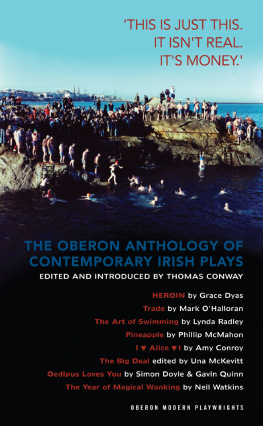
![Alice Birch - [BLANK] (Oberon Modern Plays)](/uploads/posts/book/297160/thumbs/alice-birch-blank-oberon-modern-plays.jpg)
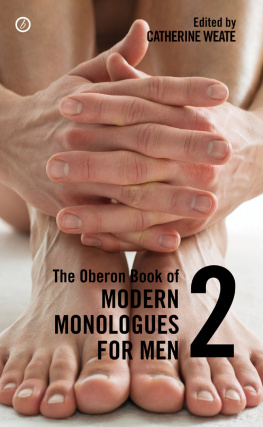
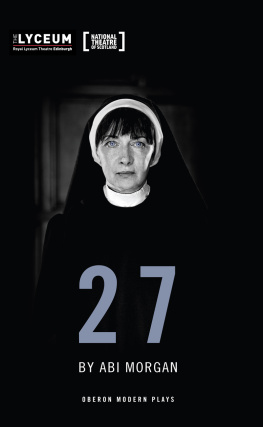
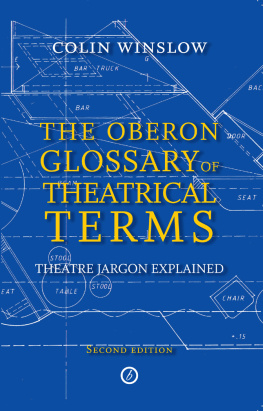
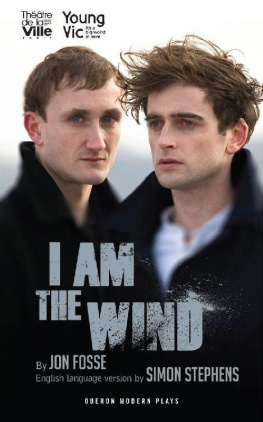

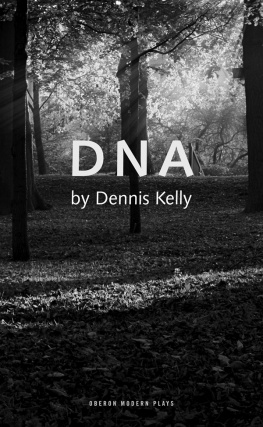
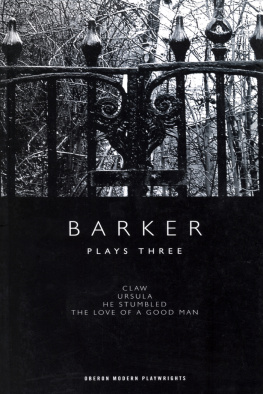
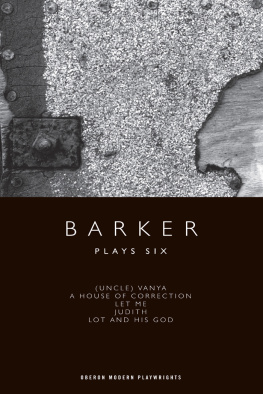

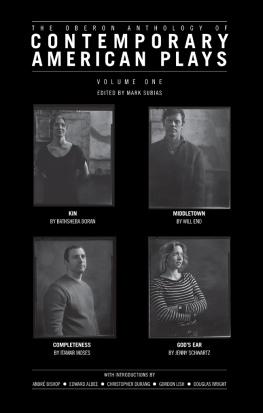

 Alice
Alice OBERON BOOKS
OBERON BOOKS Alice
Alice